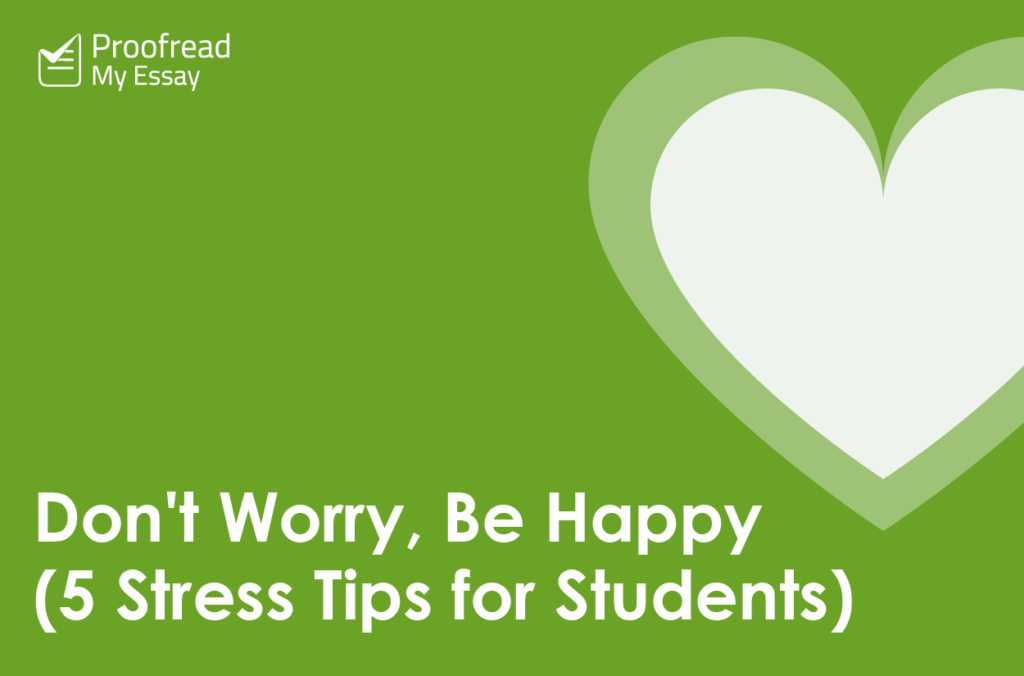University offers many opportunities for fun, excitement and even learning. But being a student can be stressful, especially when you’re balancing studies, a part-time job and a busy social life.

(Photo: Quinn Dombrowski/wikimedia)
It’s therefore no surprise that an increasing number of students are seeking support for stress and anxiety. As such, knowing how to recognise and remedy stress is essential.
1. The Symptoms of Stress
It’s easy to miss the signs of stress, especially when you’ve got a hectic schedule! But spotting stress early is crucial to minimising its effect, so keep an eye out for:
- Feeling sad, irritable or overwhelmed
- Having trouble concentrating
- Low self-esteem or constant anxiety
- Headaches, tension and muscle pain
- Loss of appetite or sleep
While not a definitive list, these are typical symptoms and you shouldn’t ignore them, especially if you find that they’re stopping you from going about your daily life as you normally would.
2. Identify Your Stressors
The next step in fighting stress is knowing what makes you feel stressed. This could include:
- Academic stress (e.g. worrying about results or workload)
- Personal stress (e.g. issues in your personal and/or romantic life)
- Family stress (e.g. dealing with pressure from your family or being away from home)
- Financial stress (e.g. living on a tight student budget)
- Future uncertainty (e.g. not knowing what you’re going to do after graduating)
It’s also worth remembering that your mood can be affected by the seasons, especially in winter.
3. Diet and Exercise
Poor diet and lack of exercise can make stress worse. Consequently, eating well and regular physical activity often go a long way to relieving its symptoms.
Find this useful?
Subscribe to our newsletter and get writing tips from our editors straight to your inbox.
In the former case, this means eating healthy food (not just pot noodles and takeaways), not skipping meals (even if you do have a deadline), and cutting down on booze and caffeine.

(Photo: bykst)
In the latter case, you should try to find time for at least 150 minutes of exercise each week. You can even work it into your daily routine, if going to the gym doesn’t appeal.
4. It’s Good to Talk
Don’t be afraid to talk to someone if you’re feeling down. A friend or family member is a good start. Speaking with your lecturer or supervisor can help, too, especially if you’re stressed about university work.
But you should remember that talking to a doctor or counsellor is always an option when you’re struggling to cope, and most universities have services like this available for students.
5. Some Well-Earned Rest
Finally, rest is also vital to minimising stress. On the one hand, this means making sure you’re getting enough quality sleep. Having a regular routine in the evening helps, along with creating a restful environment in your bedroom. Also, try not to keep checking your phone at night.
On the other hand, you need to find time to unwind, too. This could be as simple as spending a quiet evening with friends or bingeing on Netflix at the weekend. But you could also try meditation and relaxation techniques if you find it difficult to let go of your daily worries!

(Photo: cheifyc)



